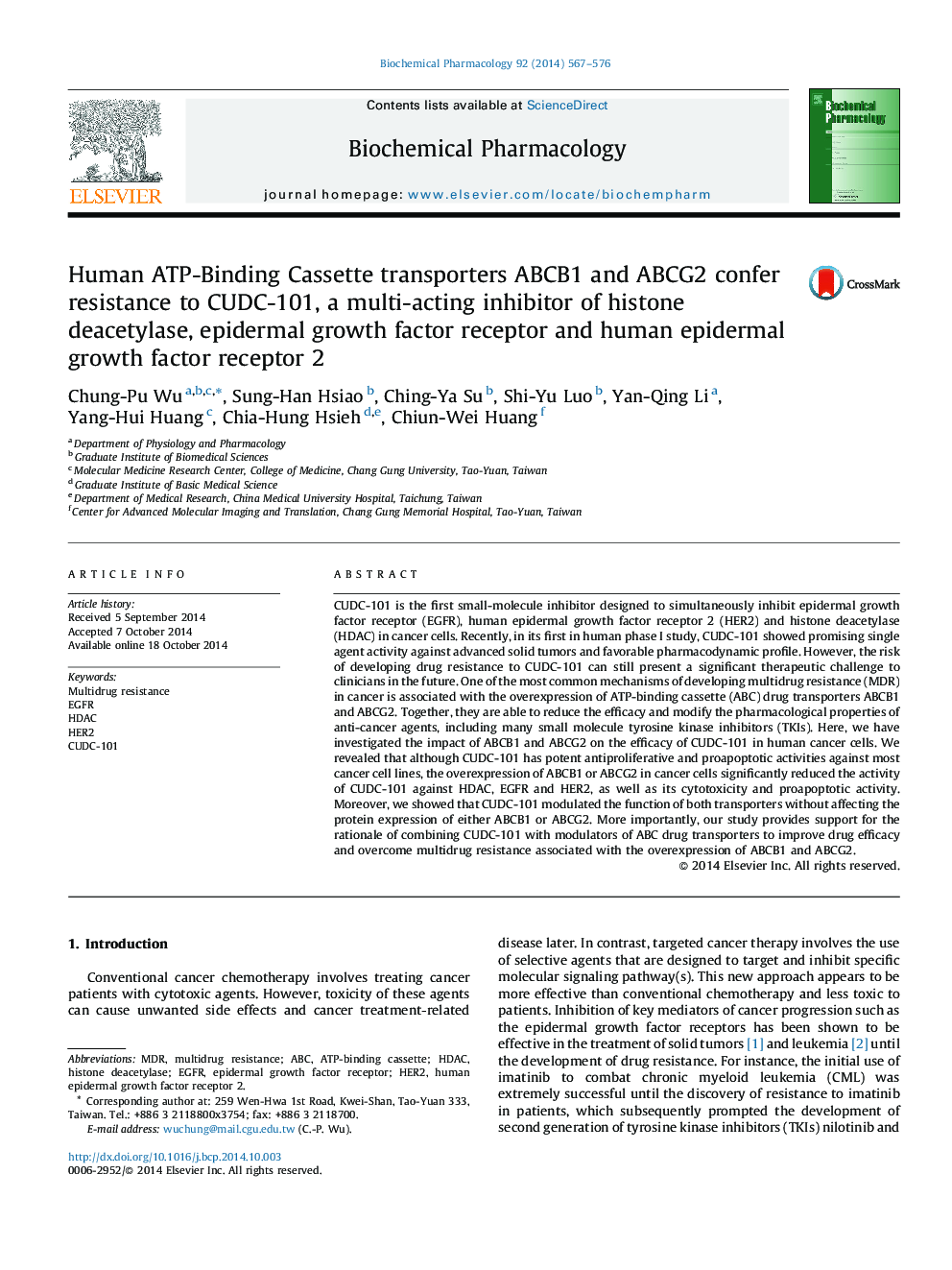| Article ID | Journal | Published Year | Pages | File Type |
|---|---|---|---|---|
| 2512191 | Biochemical Pharmacology | 2014 | 10 Pages |
CUDC-101 is the first small-molecule inhibitor designed to simultaneously inhibit epidermal growth factor receptor (EGFR), human epidermal growth factor receptor 2 (HER2) and histone deacetylase (HDAC) in cancer cells. Recently, in its first in human phase I study, CUDC-101 showed promising single agent activity against advanced solid tumors and favorable pharmacodynamic profile. However, the risk of developing drug resistance to CUDC-101 can still present a significant therapeutic challenge to clinicians in the future. One of the most common mechanisms of developing multidrug resistance (MDR) in cancer is associated with the overexpression of ATP-binding cassette (ABC) drug transporters ABCB1 and ABCG2. Together, they are able to reduce the efficacy and modify the pharmacological properties of anti-cancer agents, including many small molecule tyrosine kinase inhibitors (TKIs). Here, we have investigated the impact of ABCB1 and ABCG2 on the efficacy of CUDC-101 in human cancer cells. We revealed that although CUDC-101 has potent antiproliferative and proapoptotic activities against most cancer cell lines, the overexpression of ABCB1 or ABCG2 in cancer cells significantly reduced the activity of CUDC-101 against HDAC, EGFR and HER2, as well as its cytotoxicity and proapoptotic activity. Moreover, we showed that CUDC-101 modulated the function of both transporters without affecting the protein expression of either ABCB1 or ABCG2. More importantly, our study provides support for the rationale of combining CUDC-101 with modulators of ABC drug transporters to improve drug efficacy and overcome multidrug resistance associated with the overexpression of ABCB1 and ABCG2.
Graphical abstractFigure optionsDownload full-size imageDownload as PowerPoint slide
